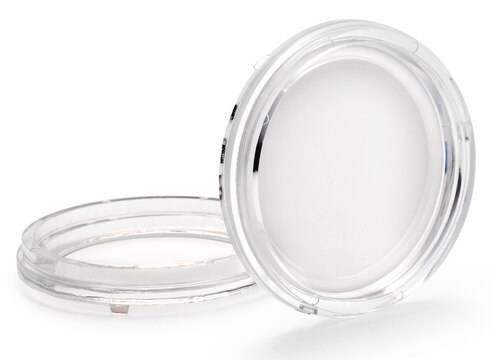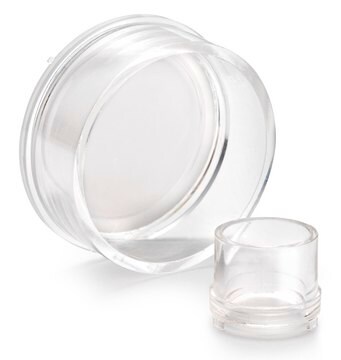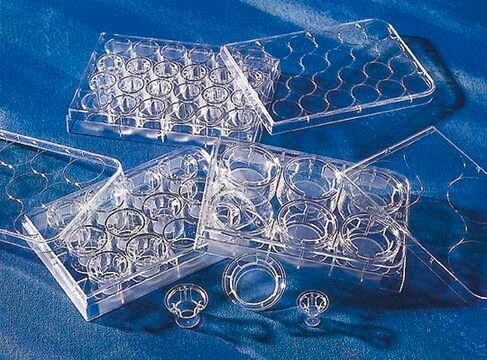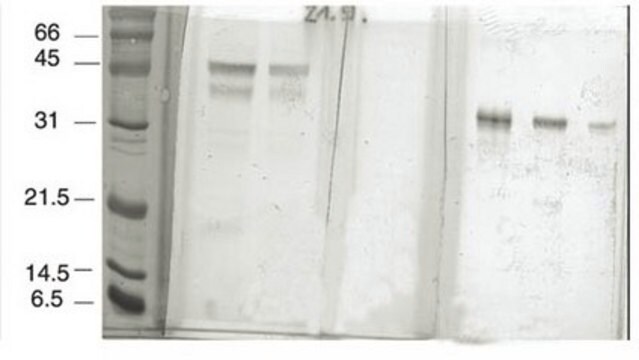PICM03050
Millicell® Standing Cell Culture Inserts
pore size 0.4 μm, diam. 30 mm, transparent PTFE membrane, hydrophilic, H 13 mm, size 6 wells, sterile
Synonym(s):
Millicell Cell Culture Insert, 30 mm, hydrophilic PTFE, 0.4 µm, Millicell-CM, cell culture inserts, permeable culture insert, plate inserts, tissue culture insert, tissue culture plate
About This Item
Recommended Products
material
polystyrene housing
transparent PTFE membrane
Quality Level
sterility
ethylene oxide treated
sterile
feature
hydrophilic
packaging
pack of 50 (individually blister packaged)
manufacturer/tradename
Millicell®
parameter
50 °C max. temp.
technique(s)
cell attachment: suitable
cell culture | mammalian: suitable
cell differentiation: suitable
H
13 mm
diam.
30 mm
filtration area
4.2 cm2
size
6 wells
surface area
4.2 cm2
working volume
1.5 mL
color
transparent membrane, when wetted
matrix
Biopore™
pore size
0.4 μm
binding type
low binding surface
detection method
fluorometric
shipped in
ambient
General description
Application
- Cell Attachment
- Cell Growth
- Cell Differentiation
- Immunocytochemistry
Features and Benefits
- Promotes excellent cell growth and provides an exceptional opportunity for cell studies
- Low protein-binding hydrophilic PTFE membrane is ideal for live cell viewing and immunofluorescent application
Legal Information
accessory
recommended
related product
Certificates of Analysis (COA)
Search for Certificates of Analysis (COA) by entering the products Lot/Batch Number. Lot and Batch Numbers can be found on a product’s label following the words ‘Lot’ or ‘Batch’.
Already Own This Product?
Find documentation for the products that you have recently purchased in the Document Library.
Customers Also Viewed
Protocols
This protocol covers three methods for the microscopic examination of cell samples.
This technical article covers the indirect co-culture of embryonic stem cells with embryonic fibroblasts.
This page covers the basic indirect co-culture procedure on both sides of Millicell cell culture insert membranes.
Related Content
This page covers the ECM coating protocols developed for four types of ECMs on Millicell®-CM inserts, Collagen Type 1, Fibronectin, Laminin, and Matrigel.
Our team of scientists has experience in all areas of research including Life Science, Material Science, Chemical Synthesis, Chromatography, Analytical and many others.
Contact Technical Service




